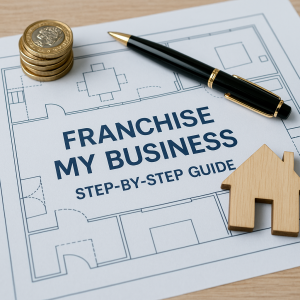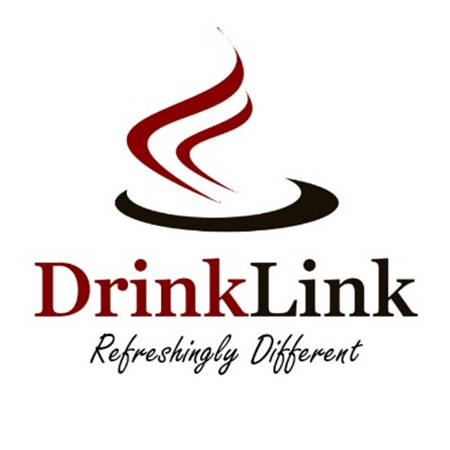 Franchising My Business – Step‑by‑Step Guide
Franchising My Business – Step‑by‑Step Guide
Why Franchise in the UK?
Franchising enables scalable business growth with reduced capital risk—your franchisees invest in growing the brand, while you focus on brand development and operations. In the UK, franchise businesses have a significantly higher survival rate than independent start-ups, with less than 5% failure over five years.
Aligning with the Quality Franchise Association (QFA) boosts your credibility and ensures you operate with best practice and ethical standards. QFA members benefit from legal templates, networking, and regulatory guidance tailored to UK franchising.
Step 1: Evaluate Franchise Viability
Your business should meet key readiness criteria before franchising:
- Proven success: Profitable track record and market demand
- Replicable model: Operational processes that can be taught and repeated
- Strong branding: A clear market position and recognisable identity
- Scalable operations: Systems for logistics, customer service, and tech infrastructure
If your model is overly reliant on your presence or unique skillset, refine operations before launching. This is called a franchising feasibility study
Step 2: Develop a Franchise Business Plan
This document outlines your franchise offer and commercial vision. Key elements:
- Franchise structure (single-unit, multi-unit, master licence)
- Franchise fee & royalties: e.g. £15,000 entry fee + 6% ongoing royalties
- Ideal franchisee profile
- Growth strategy: including target regions and timeframes
- Earnings projections: franchisor vs. franchisee income and costs
Your business plan also becomes a tool to secure legal, funding, or QFA support.
Step 3: Protect Your Intellectual Property
IP protection is vital before franchising. You should:
- Register your brand as a trademark
- Protect any proprietary product, process or trade secret
- Ensure website domains and digital assets are owned by your entity
A clean IP portfolio adds legal and commercial value to your franchise.
Step 4: Create the Legal Documents
Franchising relies on robust legal agreements:
Franchise Agreement
This covers rights, obligations, fees, support, territory, branding, renewal terms, and termination clauses. It must be compliant with UK franchise law and QFA standards.
Franchise Information Memorandum (FIM)
While not mandatory in the UK, this disclosure document is strongly recommended. It outlines key facts, performance data, and risks. QFA promotes ethical disclosure as a hallmark of good franchisors.
NDA and Good Faith Statement
Non-disclosure agreements and pre-contractual honesty (aligned with QFA code) reinforce trust with prospective franchisees.
Hire a UK-based franchise solicitor to ensure compliance and protect your brand.
Step 5: Create an Operations Manual & Training Programme
Your operations manual is the playbook for every franchisee. It should include:
- Daily procedures
- Staff roles and training
- Equipment use
- Financial reporting
- Customer service standards
- Brand and marketing compliance
Complement this with a comprehensive training programme—classroom, site-based, and online—ensuring every franchisee can meet your standard.
Step 6: Franchisee Recruitment Strategy
Define your recruitment pipeline:
- Write a Franchise Prospectus—a short brochure showcasing your model, earnings potential, and entry requirements
- Use QFA-approved portals, franchise exhibitions, and business forums
- Outline a structured interview and vetting process
Avoid “selling” to anyone with cash—prioritise cultural fit and operational commitment.
Step 7: Pilot Your Franchise Model
Before offering franchises to the public:
- Run a pilot franchise or convert a company-owned branch into a test model
- Monitor profitability, support needs, and franchisee feedback
- Refine your manual, support team, and training
QFA recommends pilots to demonstrate proof of concept and provide transparency for future franchisees.
Step 8: Fee Structure and Profitability
Establish a transparent and realistic financial model:
- Franchise fee (often £10k–£30k)
- Royalty percentage (typically 5%–10% of turnover)
- Marketing contribution (e.g. 2%)
- Break-even points and ROI forecasts
Franchisees will want to see when they recover their investment—and how scalable it is.
Step 9: Support & Quality Assurance
Franchisees expect value for their fees:
- Onboarding & site launch support
- Regular training updates
- Marketing toolkits and seasonal campaigns
- Regional support managers
- Mystery shopping and customer satisfaction tools
The QFA encourages active franchisor involvement to maintain quality and morale.
Step 10: Join the Quality Franchise Association (QFA)
Membership with the QFA provides:
- Professional credibility and ethical certification
- Access to franchise resources, templates, and peer forums
- A listing in their Franchise Directory
- Support with legal, compliance, and franchisee disputes
It sends a strong signal to prospects that you’re a professional and trustworthy brand.
Step 11: Franchise Marketing Strategy
Promote your opportunity using:
- The QFA Franchise Directory
- Franchise UK, the UK’s leading franchise portal.
- Exhibitions like the Franchise Show at ExCel London
- Success stories and testimonials
- Google Ads and LinkedIn outreach
- Use franchise consultants that are experts at franchisee recruitment such as Infinity Business Growth Network
QFA-approved members often benefit from higher trust and conversion rates in recruitment marketing.
Step 12: Sustainable Network Growth
Don’t chase rapid scale at the cost of control. Instead:
- Set realistic growth targets
- Maintain strong franchisee-to-field-manager ratios
- Review KPIs quarterly
- Offer multi-unit options to high performers
The QFA advocates sustainable growth with ongoing investment in network support.
Step 13: Consider Master or Area Franchising (Later Stage)
Once mature, you can expand through:
- Master franchisees (own and sub-franchise in a region)
- Area developers (open multiple units over time)
- Joint ventures with key operators or investors
This requires more legal documentation and stronger brand control mechanisms.
Final Advice
Franchising is not a quick fix—it’s a business transformation that requires planning, investment, and people-first thinking. Aligning with the Quality Franchise Association (QFA) provides the ethical framework and credibility that UK franchisees and lenders respect.
By following these steps and staying committed to quality support and compliance, you’ll not only scale your business—but build a community of successful, motivated partners growing your brand nationwide.




















































